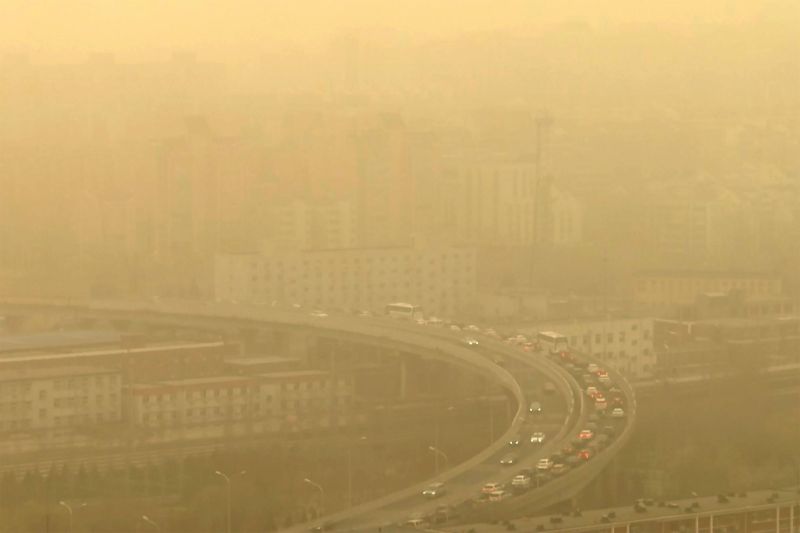The US government will stop sharing air quality data gathered from its embassies and consulates, worrying local scientists and experts who say the effort was vital to monitor global air quality and improve public health.
In response to an inquiry from The Associated Press, the State Department said Wednesday that its air quality monitoring program would no longer transmit air pollution data from embassies and consulates to the Environmental Protection Agency’s AirNow app and other platforms, which allowed locals in various countries, along with scientists around the globe, to see and analyze air quality in cities around the world.
The stop in sharing data was “due to funding constraints that have caused the Department to turn off the underlying network” read the statement, which added that embassies and consulates were directed to keep their monitors running and the sharing of data could resume in the future if funding was restored.
The fiscal cut, first reported by the New York Times, is one of many under President Donald Trump, whose administration has been deprioritizing environmental and climate initiatives.
The US air quality monitors measured dangerous fine particulate matter, known as PM2.5, which can penetrate deep into the lungs and lead to respiratory diseases, heart conditions, and premature death. The World Health Organization estimates that air pollution kills around 7 million people each year.
News of the data sharing being cut prompted immediate reaction from scientists who said the data were reliable, allowed for air quality monitoring around the world and helped prompt governments to clean up the air.
‘A big blow’ to global air quality research
Bhargav Krishna, an air pollution expert at New Delhi-based Sustainable Futures Collaborative, called the loss of data “a big blow” to air quality research.
“They were part of a handful of sensors in many developing countries and served as a reference for understanding what air quality was like,” Krishna said. “They were also seen to be a well-calibrated and unbiased source of data to cross-check local data if there were concerns about quality.”
“It’s a real shame”, said Alejandro Piracoca Mayorga, a Bogota, Colombia-based freelance air quality consultant. US embassies and consulates in Lima, Peru, Sao Paulo and Bogota have had the public air monitoring. “It was a source of access to air quality information independent of local monitoring networks. They provided another source of information for comparison.”
Khalid Khan, an environmental expert and advocate based in Pakistan, agreed, saying the shutdown of air quality monitoring will “have significant consequences.”
Khan noted that the monitors in Peshawar, Pakistan, one of the most polluted cities in the world, “provided crucial real-time data” which helped policy makers, researchers and the public to take decisions on their health.
“Their removal means a critical gap in environmental monitoring, leaving residents without accurate information on hazardous air conditions,” Khan said. He said vulnerable people in Pakistan and around the world are particularly at risk as they are the least likely to have access to other reliable data.
In Africa, the program provided air quality data for over a dozen countries including Senegal, Nigeria, Chad and Madagascar. Some of those countries depend almost entirely on the US monitoring systems for their air quality data.
The WHO’s air quality database will also be affected by the closing of US program. Many poor countries don’t track air quality because stations are too expensive and complex to maintain, meaning they are entirely reliant on US embassy monitoring data.
Monitors strengthened local efforts
In some places, the US air quality monitors propelled nations to start their own air quality research and raised awareness, Krishna said.
In China, for example, data from the US Embassy in Beijing famously contradicted official government reports, showing worse pollution levels than authorities acknowledged. It led to China improving air quality.
Officials in Pakistan’s eastern Punjab province, which struggles with smog, said they were unfazed by the removal of the US monitors. Environment Secretary Raja Jahangir said Punjab authorities have their own and plan to purchase 30 more.
Shweta Narayan, a campaign lead at the Global Climate and Health Alliance, said the shutdown of monitors in India is a “huge setback” but also a “critical opportunity” for the Indian government to step up and fill the gaps.
“By strengthening its own air quality monitoring infrastructure, ensuring data transparency, and building public trust in air quality reporting, India can set a benchmark for accountability and environmental governance,” Narayan said.

